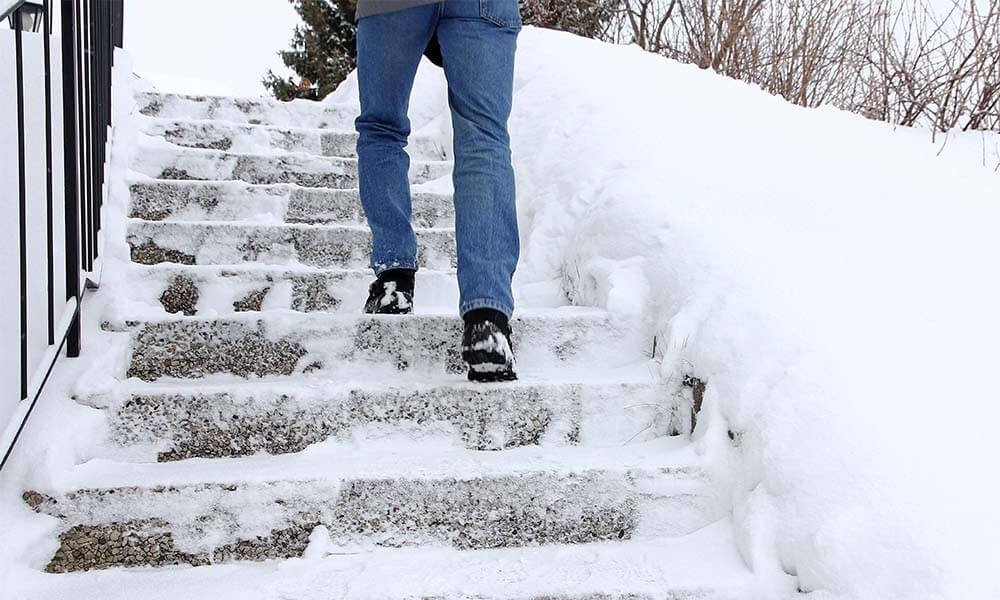
Nationwide, one in four adults over the age of 65 experience a fall, and an older adult dies every 20 minutes, according to CDC data.
As the seasons change each year, safety becomes paramount, and taking proactive steps to prevent falls can help save lives. Fall prevention requires a collaboration between you, your primary care provider, and family members/caregivers.
Concordia’s Dr. Michael McKinnis, PhD, OTR/L, and OTDe student Kyra Lenzi offer the following tips for staying safe this winter season:
1. Assess shoe condition.
Just like your car tires, your shoe tread needs to be checked when winter rolls around. Ensure you have well-fitting shoes with good tread. Avoid sandals or Crocs when walking outside as these have limited traction or support.
2. Keep clothing from catching on doorframes.
As the temperatures drop, we add more layers. However, these oversized and baggy clothing items can often get caught on door handles or get in our way when safely navigating in our environment. It’s important to take extra precaution when exiting doorways, especially around stairs, not to snag your extra layers.
3. Remove debris or slipping hazards from walkways.
Keep stairs and sidewalks clear of leaves and ice. Leaves can be slippery when wet.
4. Add traction.
If you have to walk outside in the snow, consider adding crampons (grips) to your shoes for increased traction.
5. Maintain physical activity.
Find indoor spaces to continue walking. Walking keeps your leg muscles stronger which can prevent falls. Most cities have community/senior centers or indoor malls. Find a friend to keep you accountable for exercising. It’s ok to snack…on exercises. Ideally, we should be exercising for 30 minutes per day; it’s okay to do this in 3- to 10-minute increments if you can’t find an uninterrupted block of time.
6. Stay hydrated.
When we are not adequately hydrated throughout the day, we lose our alertness and ability to think clearly. We can receive our daily hydration from both drinks and certain foods; however, to determine your optimal daily hydration needs, consult your primary care provider.
7. Keep your phone handy.
In the case that you do experience a fall, having your phone nearby will allow you to call for help sooner. If you have smart-home technology (such as Amazon Alexa), you can use these devices to call for help if your phone is not nearby.
8. Participate in a fall prevention program.
The Stepping On program is an evidence-based fall prevention program that empowers older adults to carry out health behaviors that reduce the risks of falls.
Wisconsin locations that will assist you in finding a Stepping On session near you:
- Ozaukee County—Aging and Disability Resource Center
- Milwaukee County Fall Prevention Coalition (MCFPC)
9. Stay current on your eye exams.
Medicare covers annual eye exams, so make sure you are staying current with your exams.
10. Do a medication check.
Talk with your primary care provider about your current medications, as it is important to discuss the impacts of your medications on fall risk.
—These fall prevention tips were developed by Dr. Michael McKinnis, PhD, OTR/L, and CUW Doctoral student Kyra Lenzi. If you have further questions for fall prevention, do not hesitate to reach out: Michael.McKinnis@cuw.edu. If you have further questions about the OT Clinical Doctorate, click here.
This blog was originally published on December 22, 2021. It has been updated to reflect current information.